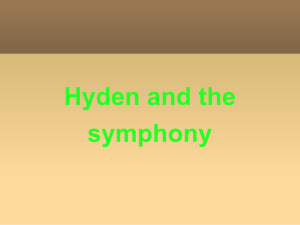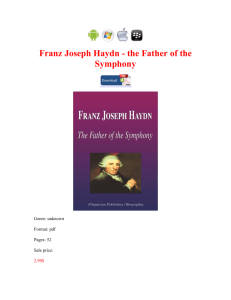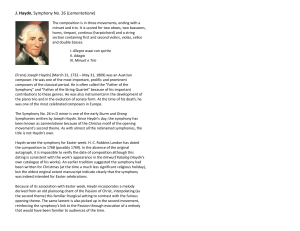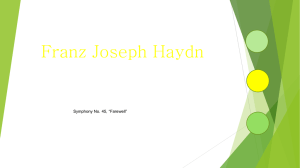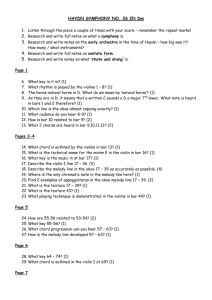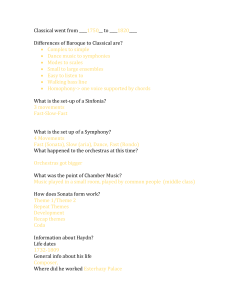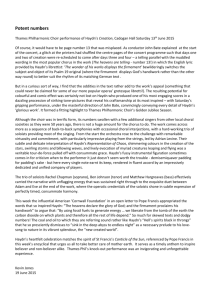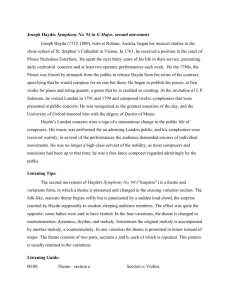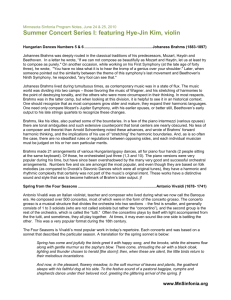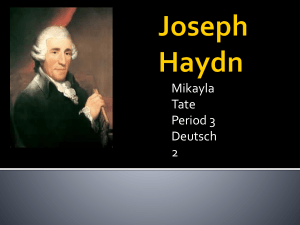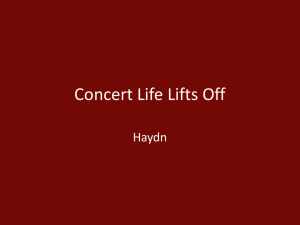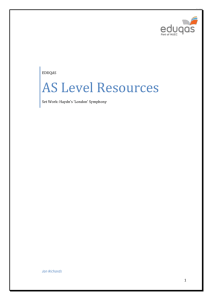First Movement
advertisement
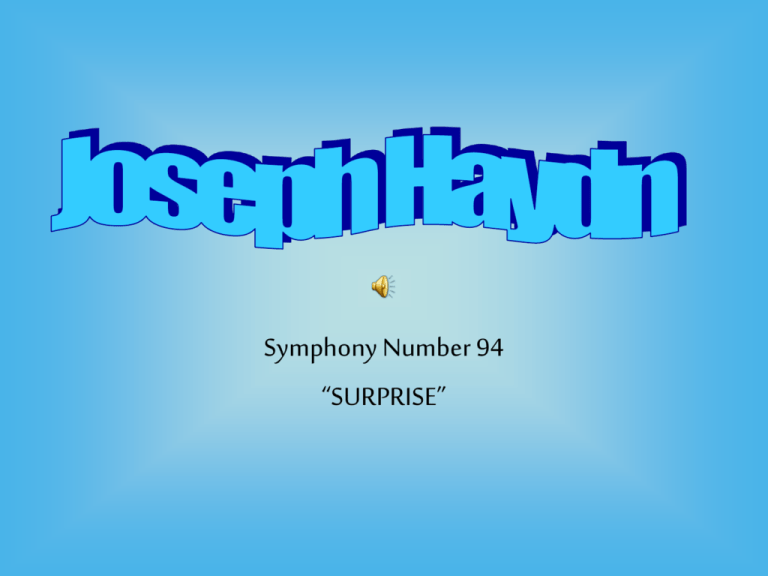
Symphony Number 94 “SURPRISE” THIS PIECE HAS FOUR MOVEMENTS • MOVEMENT ONE: Adagio cantabile; Vivace assai • That means: adagio: slowly cantabile: in a singing style vivace: quickly assai: a lot of • So, this movement starts SLOWLY (adagio) but in a singing style (cantabile) and then becomes FAST – very fast (Vivace assai). • THIS IS THE FAST PART: VIVACE ASSAI • The violins have lots of energy (vivace). • The violins have many, many notes to play. This takes a bit of practice… • And, just when the violins are getting tired… • ENTER THE OBOE! But just briefly and the violins are back! • The first theme of the fast section is a brief dance tune that is played softly by the violins, then loudly by the full orchestra. • The second theme is a carefree waltz melody. Instruments in this piece: • • • • • • • • • • Flutes Oboes Bassoons French Horn Trombone Timpani Violins Violas Cellos Basses When was this written? • The numbers of Haydn’s symphonies aren’t assigned in the right order! • This set of symphonies was composed for Haydn’s first trip to London in 1791-1972. • The symphonies were composed in the order: 96-95-93-9498-97. • No, that doesn’t really make much sense…. • Symphony number 94 was written during the summer and fall of 1791 and first performed on March 23 of the following year. • It was performed in London, where Haydn had been invited to live for a while. SURPRISE? • For the second movement (you’ll hear that later), Haydn’s original intention was simply to write a set of variations on a tune. • Actually, the fortissimo outburst (LOUD NOISE) that gave the symphony its nickname was an afterthought! • It was not prompted by his wish to “wake the ladies and make them scream” but by his desire to compete with his former pupil Ignaz Pleyel, who had been brought to England and was his rival. • Haydn thought it would be funny to use this idea, as Pleyel had taken this idea from HIM originally. • Whatever the reason, the effect was brilliantly successful and brought forth all sorts of descriptions and interpretations in the press. • In other words, IT GOT THEIR ATTENTION! Joseph Haydn • 1732-1809 • Born in Rohrau, Austria Interesting… • Mozart was one of Haydn’s dearest friends. • While Haydn was in London, he found out that Mozart had died at age 34! Haydn was devastated. • He also knew Beethoven. • They were not great friends, but they had mutual respect. Haydn’s writing • This manuscript is in a museum in Austria. It is the original writing of Joseph Haydn. Some symphonies can last for a couple hours! • The entire symphony, all FOUR movements, is only about 22 minutes long. • In the “Surprise Symphony”, Haydn returns to the closing theme which brings a feeling of relaxation, and the movement ends joyfully. Sit back, relax and enjoy the ending of this great first movement! • I hope you have enjoyed the first movement of the “Surprise Symphony”!
